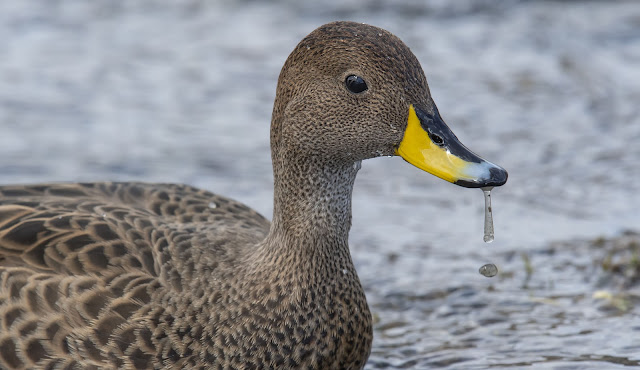As we approached South Georgia, Matt sent me a text saying that I should make sure I see both the South Georgia Pintail, and the South Georgia Pipit.
As these birds are both only found on South Georgia, and I was unlikely to ever get back there it was a gentle reminder that these birds were quite important to see. Although neither Lisa or I are bird listers, we do still like to see any unusual birds and other wildlife. There were also several other people on the trip who also wanted to see these birds, and most of them were listers, so they were even more keen!!
As it happened, the South Georgia Pintail was extremely easy to see, and also very approachable, and we had many opportunities to see and photograph this pretty duck.
South Georgia Pintail.
South Georgia Pintail.
Not only were these ducks easy to see, they were also easy to hear. They were regularly calling which was a loud whistle that sounded very much like a referees whistle in a football match!
As we were early in the season, the Pipit was much harder for us to see, and many birders were getting a little frustrated. Really reliable sites were tried by the guides, but it wasn't until we landed at Godthul that we had some really good encounters with them as we climbed the steep hill behind the beach. This is the most southern songbird in the World, so as soon as we heard a bird flying high above us singing loudly, we knew we had found some. Each time they came down to land they landed in the large grassy tussocks, making it hard to get really clear photos of them. However, they were approachable, and they often moved into view to carry on calling.
South Georgia Pipit.
Following Godthul, we went on to St. Andrews Bay, where two scientists were staying in a small hut while they did research on the penguins. One of our guides mentioned the lack of Pipits and the scientists mentioned that they had found a cave with large numbers of Pipits over-wintering. Presumably the birds were finding insects in the cave that helped them through the severe winters.








No comments:
Post a Comment